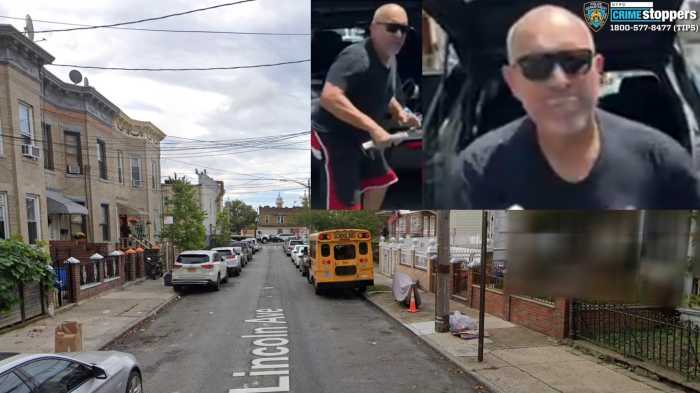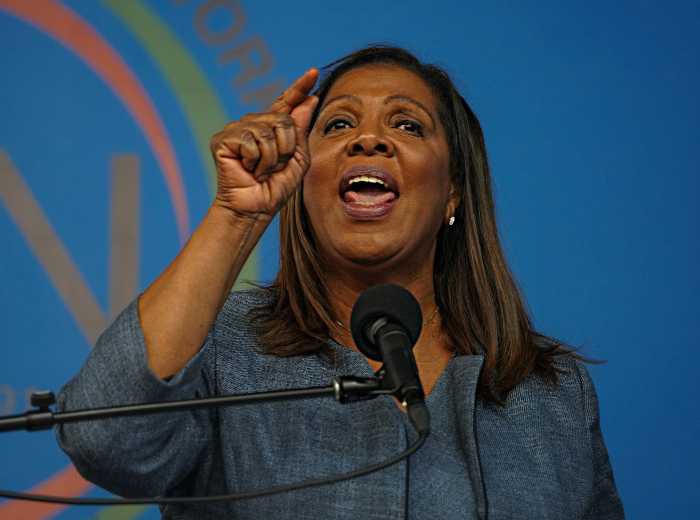BY ALINE REYNOLDS | Fifty-four-year-old Glen Klein is one of scores of injured Sept. 11 first responders who are anxiously awaiting compensation from the government for economic losses tied to their physical ailments.
Klein, who has three children, was forced into premature retirement from the New York Police Department due to a slew of medical problems tied to recovery work at Ground Zero, including lung and gastrointestinal troubles.
Having had to retire 10 years earlier than planned, Klein could use the financial aid as soon as possible. However, he and other 9/11 first responders, plus others who got sick from their exposure to Ground Zero, will have to wait longer than expected to be compensated by the government.
The Victim Compensation Fund (V.C.F.), the reimbursement portion of the James L. Zadroga 9/11 Health and Compensation Act, was supposed to be awarding claims as early as this summer. But distribution of awards has been placed on hold, V.C.F. Special Master Sheila Birnbaum has told the Downtown Express.
“I don’t like the idea — not one bit,” said Klein. “Some people have already lost their homes.”
According to Birnbaum, who heads the program, the fund won’t be active until the National Institute for Occupational Safety and Health (N.I.O.S.H.) decides to add cancer to the list of illnesses covered by the law. The reason for the delay is ostensibly due to the program’s financial constraints: The fund, valued at the fixed amount of $2.775 billion, can only be divided in so many ways.
Birnbaum made it clear that she and her team have no involvement in N.I.O.S.H.’s final ruling, which is to be determined by Dr. John Howard, the law’s health administrator. In early June, Howard made a proposal to add 50 types of cancer to the list of illnesses covered by the federal law, but he hasn’t indicated when he’ll make a final decision.
As a result, “Our timetable has been put off,” said Birnbaum. “We’re waiting to see what the final rule is going to be on cancer. As soon as we find that out, I think we’re going to be in a position to start trying to make some payments, because then we’ll know what the estimates will be.”
In the meantime, Birnbaum is in the process of reviewing all the V.C.F. claims that are complete. She and her team are notifying claimants whose applications lack necessary medical information and other application data, “to advise them as to what they need in order to put their claims into a position to be reviewed for payment,” she said.
Asked about the time frame of the cancer addition, N.I.O.S.H. spokesperson Christina Spring said that Howard is in the process of reviewing the feedback from the cancer proposal’s public comment period, which closed on July 13. Once the ruling is finalized, she noted, another 30 days will transpire before the proposal becomes law.
The V.C.F.’s New York City office, to open next month at 290 Broadway, will be responsible for arranging hearings for claimants who will be appealing their compensation awards once they receive them. In the interim, Birnbaum and her team are scheduling additional clinics hosted by the New York City Bar Association, in which practicing lawyers and students help claimants fill out the necessary forms for compensation on a pro-bono basis.
“They can submit claims up to five years [from now], but they have to submit it two years from the time they know or should know their injury,” Birnbaum said. The same policy will apply to cancer claimants, assuming that the cancer provision gets added to the law. “We’ll work with whatever parameters we’ll have as best as we can to make sure everybody gets awarded at least part of their claim,” she said.
However, Birnbaum stressed that her hands are tied with respect to the total sum available to claimants. “We only have the amount of money Congress provided to us,” she said. “The only way there’d be a change, I assume, would be a legislative change.”
Senator Kirsten Gillibrand and the other politicians are also looking to reauthorize the existing law — currently set to expire in 2016 — so that money can be added to either the health or compensation portion, or both. The Senator deems Howard’s forthcoming decision to add cancer to the bill “a big step forward,” according to spokesperson Glen Caplin. “We will work as hard to reauthorize the 9/11 health bill beyond 2016 as we did in originally ensuring Congress fulfilled its undeniable moral obligation to our heroes and community survivors,” he said.
Legislators are also planning to introduce a bill to Congress as early as this fall that would extend the amount of time people would have to apply for V.C.F. money by several years, according to John Feal, president of the FealGood Foundation, a 9/11 advocacy group. “A bill will be introduced in September to extend Zadroga, so that it’s more than five years,” he said.
Gillibrand, he added, would be introducing the bill. Caplin confirmed that new legislation is in the works but wouldn’t confirm the timing.




































